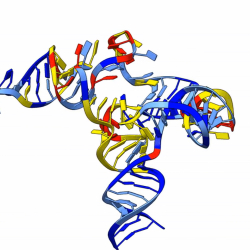UMD Startup Ionic Devices Wins Microbattery Design Prize
An innovative startup that emerged from the research labs of two University of Maryland faculty members has been awarded the Phase 1 Microbattery Design Prize by the U.S. Department of Energy (DOE) Advanced Materials and Manufacturing Technologies Office.
Ionic Devices, which received a $75,000 cash prize and the opportunity to conduct battery performance and safety testing at a DOE national laboratory, was cofounded by Professor Gary Rubloff of the Department of Materials Science and Engineering and Professor Sang Bok Lee of the Department of Chemistry and Biochemistry.
Microbatteries have total volumes one-tenth of a cubic centimeter or less; they are used in applications like implantable medical devices and wearables. Ionic Devices’ project focuses on developing a solid-state battery, which is both safer and capable of operating at powers orders of magnitude higher than traditional lithium-ion batteries.
The award highlights the university’s groundbreaking work in the field aimed at propelling advancements in clean energy manufacturing, sensor technologies, circuit-integrated batteries, and various next-generation “iontronic” devices, which are an emerging technology that uses ions rather than electrons as the signal carrier.
“Winning this award validates a decade’s worth of fundamental research. Our approach is fundamentally different from traditional battery manufacturing, and we are excited to prove its capabilities,” said Keith Gregorczyk, UMD associate research scientist and CEO of Ionic Devices.
During Phase 1, participating teams submitted comprehensive designs for batteries, encompassing detailed descriptions, technical specifications, intended applications, and potential impacts. The eight winning teams will significantly advance their designs to a commercially relevant prototype scale in Phase 2 of the competition. This phase involves conducting thorough performance and safety testing, completing a techno-economic analysis, and taking strides toward a realistic pathway to commercialization.
Written by Catherine O'Brien Stephens and Keith Gregorczyk






